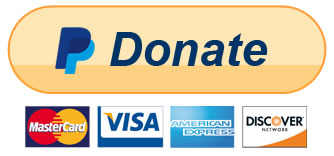When things go wrong, it is human nature to look for someone to hold responsible. We either blame others or we blame ourselves. This can be very true after brain injury, because you are trying to make sense out of what has happened to you. You may find yourself blaming the doctor, the other driver, your family, the system, etc.
This blaming tends to make you feel frustrated, angry, depressed, helpless, and hopeless. These feelings lead to a downward spiral, and you just keep feeling worse and worse and worse, and your life feels out of control. Some people get stuck here and can’t move forward.
The other thing that happens to many people after brain injury, is that they don’t trust themselves or their abilities any more, and they rely on others to do things for them. Family members are usually happy to “look after you” for awhile, but this can be very draining on them over time.
The end result is that you feel dependent, hopeless and helpless. And again, you feel you no longer have any control over your life.
Take responsibility for yourself and your future, and control of your life again.
This is best started with very small actions, and as you gain confidence you can work your way up and out of the downward spiral.
The first step is remembering to say the following to yourself:
· I am responsible for everything I do and say.
· I choose what I will do and say – I cannot blame others for my choices, and they cannot blame me.
· When I do well, I get the credit.
· When I do not do well, I take the responsibility and learn what I can do differently in the future.
· I am not responsible for what others do and say.
· Other people make their own choices – they cannot blame me, and I cannot blame them.
Personal responsibility and commitment to yourself are essential in learning how to work around the deficits from your brain injury. No one can change how your brain works. No one can change how you function, or make your life better, except you. Remember the old saying, “If you keep doing what you have always done, you will keep getting what you have always gotten”. You hold the power and responsibility to make changes in your life.
Taking Personal Responsibility Means:
· Living a healthy lifestyle ·
· Exercising in some way every day ·
· Looking after your health conditions ·
· Never using a cell phone when driving ·
· Never driving when you are tired or sick ·
· Being smart about the risks that you take ·
· Minimizing the risk of injuring yourself and/or others ·
· Always wearing a helmet when cycling, or participating in risky sports and activities ·
· Slowing down, looking both ways, and then looking the driver in the eye when crossing the road ·

